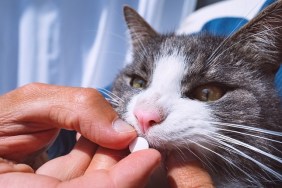We all know that certain plants and flowers can be dangerous if your cat eats them. You can check the ASPCA’s website to read up on the full list of plants to avoid, but here we’re going to focus on whether lilies are potentially harmful to cats.
This is especially important to talk about around Easter because many people bring home Easter lilies without considering the danger they present to pets.
If you have cats in your family, read on, and think twice about bringing those beautiful lilies home!
The Statistics About Lilies & Cat Parents
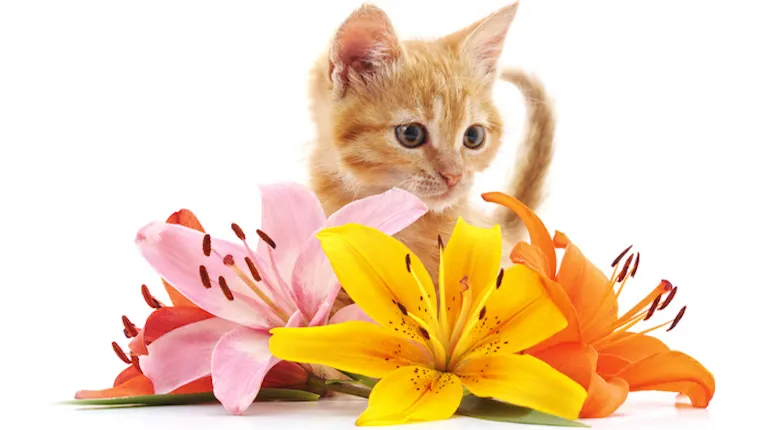
An article published in the Journal of American Animal Hospital Association back in 2011 focused on lily exposure in 57 cats. It included statistics on pet parents’ awareness of lily toxicity.
The results showed that 73 percent of cat parents had no knowledge of the risks involved with lilies. More disturbingly, 27 percent were aware of the potential threat but still brought them into the home.
What does this tell us? It means that, if these numbers are representative of all cat parents, awareness about lily exposure needs to increase.
What Can Happen When A Cat Eats Lilies?
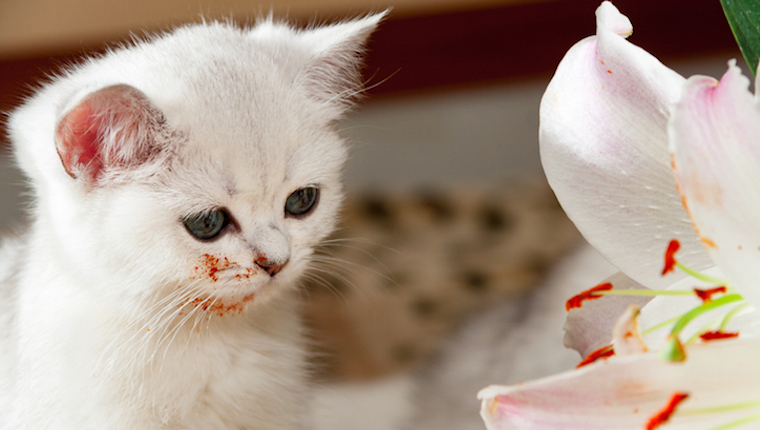
Eating even tiny amounts of a lily can cause acute kidney failure in cats. All of the parts — flower, leaves, even pollen — are potentially toxic.
There is no test for lily toxicity. The diagnosis is based on known or suspected history of ingestion or seeing parts of the plant in a cat’s vomit.
While we don’t know the exact reason lilies are so toxic to cats, we do know that early and aggressive therapy is needed to save cats who eat them.
How Are Cats Who Eat Lilies Treated?
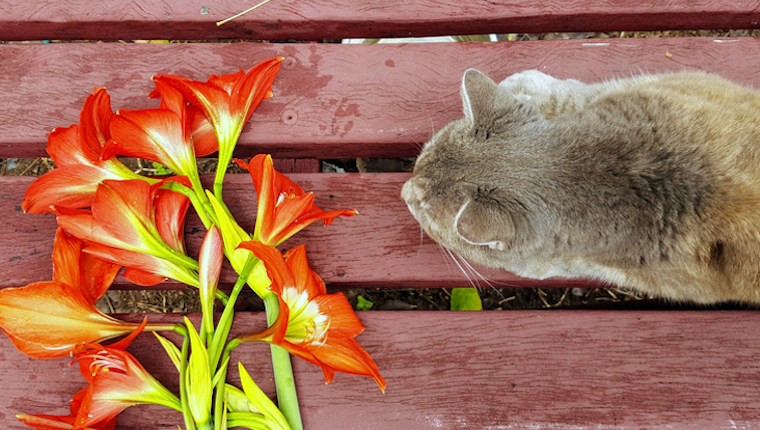
If your cat eats lilies or you suspect they might have, you must call your emergency vet immediately.
The initial treatment for cats who eat lilies is induction of vomiting to empty the stomach as soon as possible after ingestion — ideally within an hour — and medication to prevent absorption of the toxin from the gastrointestinal tract.
After that, the cat might receive 48 hours of intravenous fluid therapy to ensure the kidneys continue to function properly.
Prognosis: Is Treatment Effective?
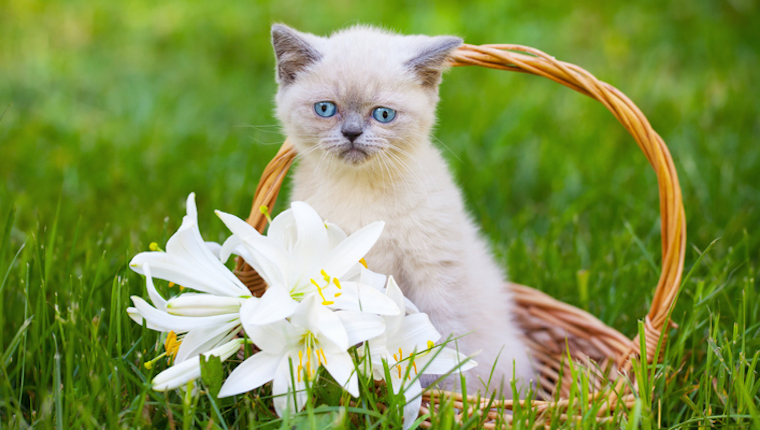
As long as cats who eat lilies receive prompt and complete treatment, and kidney values remain normal 48 to 72 hours later, they have a good long term prognosis.
But if a cat who eats a lily doesn’t receive early intervention, signs of kidney failure typically develop in two to four days, and the mortality rate is unfortunately high.
Lilies are a serious threat to cats. Don’t be one of the 27 percent of cat parents who know about the risk but still bring home lilies anyway, especially around Easter time.
Do you keep Easter lilies out of your home because of your cats? What flowers should cat parents bring home instead? Let us know in the comments below!








